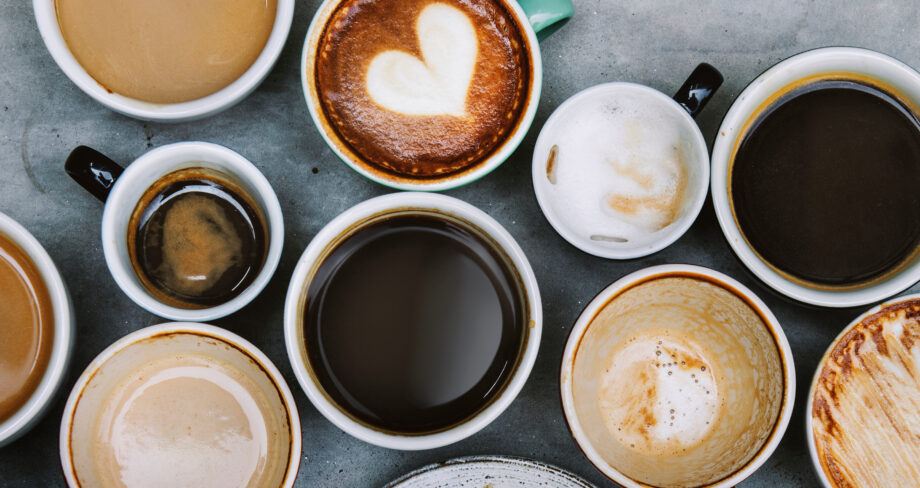For many people, coffee is an essential part of their daily routine. However, while moderate consumption of quality coffee can have positive health benefits, the caffeine content can lead to feelings of anxiety and jitteriness. If you’re someone who relies on coffee to start your day but wants to avoid these negative side effects, there are ways to lessen their impact.
Understanding the effects of caffeine on your nervous system is key to managing coffee-induced anxiety. By making some simple changes to your coffee-drinking habits, you can still enjoy your daily cup without feeling overly anxious or jittery. In this article, we’ll explore some tips and tricks for reducing the impact of caffeine on your body and mind.
Coffee Has Many Benefits
Coffee is a popular beverage that is enjoyed by millions of people worldwide. It is rich in antioxidants that help fight oxidative stress, which can damage cells and contribute to the development of chronic diseases. Studies have shown that regular coffee consumption is associated with a lower risk of mortality and cardiovascular disease. Additionally, drinking coffee can decrease the risk of developing type 2 diabetes and is a good source of magnesium.
Interestingly, research has shown that drinking just the right amount of coffee may also help decrease stress and anxiety. Habitual intake of one to two cups of caffeinated coffee a day can mitigate the stress response and train the brain to handle stress. This leads to the release of dopamine, a feel-good neurotransmitter that supports motivation and cognitive functions.
Overall, coffee has many beneficial properties that make it a great addition to a healthy diet.
How Does Coffee Impact Anxiety?
If you are a coffee lover, you may have heard that coffee can cause or worsen anxiety. But is it true? According to research, the answer is yes, but only if you consume a lot of it. When you drink more than four 8-ounce cups of caffeinated coffee per day, it can add to your stress response and anxiety.
Caffeine is a central nervous system stimulant, and large doses can overstimulate your nervous system, leading to overactive thinking and hyperactivity. It can also lead to the release of glutamate, an “excitatory neurotransmitter,” which acts like a gas pedal on your neurons, making them fire at a higher frequency. This can translate into overactive thinking and hyperactivity.
Moreover, caffeine has an impact on your body’s stress response, and your system releases cortisol and adrenaline when you drink coffee. These stress hormones prepare your body for the flight and fight response, leading to an increase in heartbeat and pulse rate, among many other physiological responses.
Additionally, caffeine inhibits GABA release, an inhibitory neurotransmitter that helps with feelings of calmness. Losing the balance between glutamate and GABA can lead to negative effects on mood.
Therefore, it is essential to keep your caffeinated beverage consumption in check to avoid these negative effects. You can test whether caffeine is affecting your stress response by checking your pulse at rest after drinking coffee and comparing it to a baseline. Limiting your coffee intake can help you manage anxiety and stress levels.
Coffee Affects People Differently
Coffee is a popular beverage that can affect people in different ways. While some people can drink multiple cups of coffee without feeling anxious, others can feel anxious after just one cup. Research suggests that variations in certain genes, such as the ADORA2A and CYP1A2 genes, can control fatigue and metabolize caffeine, respectively, and are responsible for the anxiogenic effect of caffeine. This means that your genes might be wired to make you feel more wired after even a small cup of coffee. If you are one of these people, it may be best to switch to decaf or try a less-caffeinated or non-caffeinated tea. It is important to understand how coffee affects you personally and make choices accordingly.
| Key Points |
|---|
| – Coffee affects people differently |
| – Variations in certain genes can be responsible for the anxiogenic effect of caffeine |
| – Switching to decaf or less-caffeinated or non-caffeinated tea may be a better option for those who feel anxious after drinking coffee |
What to Do if You Don’t Want to Give Up Coffee
If you find it difficult to give up coffee completely, don’t worry, you can still enjoy your favorite drink while minimizing the negative effects. The key is to gradually reduce your caffeine intake to a low-moderate level so that you can still experience the benefits of coffee without the side effects.
To achieve this, you can start by slowly decreasing the amount of coffee you drink every day. Begin by leaving out one-quarter of your cup every two to three days until you reach your desired dose. This way, you can avoid withdrawal symptoms and still enjoy the positive effects of caffeine.
It’s also recommended to drink coffee after eating something or mixed with some fat- and protein-rich milk to keep stress hormones under control. Drinking coffee on an empty stomach may make the stress and anxiety response more pronounced for you.
If you find that much of your coffee drinking was due to ingrained habits or the pleasurable ritual of preparing, sipping, and sharing it with friends, you can still enjoy the social aspect of coffee by making your second or third cup decaf. This way, you can still enjoy the taste and experience of coffee without the negative effects of caffeine.
In summary, if you don’t want to give up coffee entirely, you can still enjoy it by gradually decreasing your caffeine intake and making some small adjustments to your coffee-drinking habits. By doing so, you can still experience the benefits of coffee without the negative side effects.







